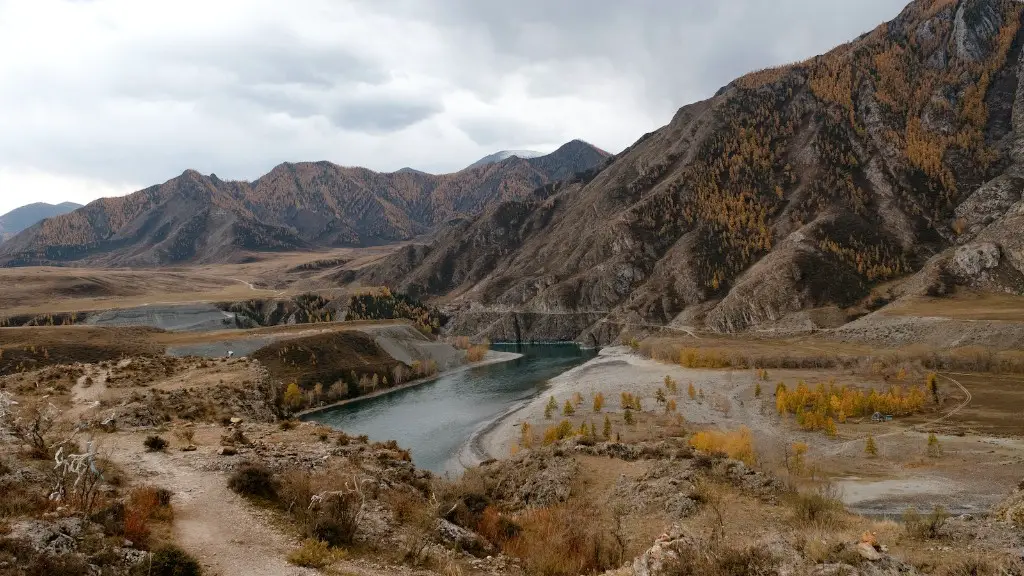Economic Importance
The Yangtze River is the third longest river in the world and the longest river in China, running from the Qinghai-Tibet Plateau in the west through the vast Chinese interior to the East China Sea. The Yangtze River has great economic importance to China. It is a major shipping route used for carrying goods and transporting materials such as coal, iron ore, and limestone for its many industries. The Yangtze River is also an important supply of water for agricultural irrigation and domestic use, providing water for more than 500 million people living along its shores.
Furthermore, the Yangtze River is an important source of hydroelectricity, with 19 hydroelectric dams already built and operating on the river. The Three Gorges Dam is the largest hydropower project in the world, providing much of the electricity used in China today. The economic benefits of this river are immense, with the energy produced by the dam directly benefiting the country’s economic development.
Environmental Impact
Historically, the Yangtze River was seen as a natural resource to be utilized, with little regard for the environmental impacts. This has led to serious environmental problems such as flooding, soil erosion and water pollution caused by industrial and agricultural runoff, as well as wastewater discharged into the river by factories and cities.
In recent years, there has been an increased focus on protecting the environment, with new regulations and initiatives aimed at improving the river’s ecological health. The Chinese government has implemented measures such as restoring wetlands and wetlands vegetation, cleaning up water pollution, and developing water-conserving irrigation systems.
Cultural Significance
The Yangtze River is a major geographic feature of China and is deeply entrenched in its history and culture. It is often referred to as the ‘mother river’ as it is seen as a sustaining force for the country and its people.
The Yangtze River has been immortalized in literature, poetry, and song. It is also a significant destination for tourists and has been the source of many ancient myths and legends. This rich cultural and historical significance of the Yangtze River is reflected in its many cultural festivals and events held along its banks.
Strategic Value
The Yangtze River forms a strategic boundary between east and west, as it passes through some of the most heavily populated parts of the country. It has historically played a major role in military and security operations, including the defense of the country during the War of Resistance in the 1930s and 1940s.
Today, the Yangtze River continues to be an important part of China’s military strategy, as its many tributaries and lakes provide a way for the Chinese Navy to reach the Indian Ocean and beyond. The river also provides strategic access to important domestic ports such as Shanghai, Nanjing and Wuhan.
Biodiversity
The Yangtze River is home to a number of rare and endangered species, including the Chinese alligator, finless porpoise, panda, Chinese sturgeon and Yangtze waterfall frog. These animals are under threat from water pollution, the destruction of their habitats, and the building of dams.
To combat these threats, a number of conservation efforts have been put in place to protect these species. This includes the establishment of national parks and wildlife sanctuaries, as well as public campaigns to raise awareness of the ongoing conservation efforts.
Education
The Yangtze is a significant destination for educational trips as well, offering a unique opportunity to learn about the history, culture, and environment of the river and its surrounding area. Educational trips such as these provide students with a deeper understanding of the environment and its importance.
The Yangtze River, with its interesting history, geographical and cultural significance, provides an important opportunity for students to expand their knowledge and gain a better understanding of their environment.
Tourism
The Yangtze River also attracts a growing number of tourists from around the world. The river’s unique ecology, geological features and cultural attractions make it an attractive destination for visitors.
The Three Gorges Dam offers a unique experience for visitors, with its massive size and massive scale of engineering prowess. River cruises on the Yangtze, meanwhile, offer the opportunity to take in some of the country’s most stunning scenery while travelling on the river’s grandiose and ever-changing waters.
Conclusion
The Yangtze River has been an important part of China’s history, culture, and economy and it continues to play an important role today. From its economic importance to the country to its cultural and educational significance, the Yangtze River is an integral part of modern China’s way of life. Furthermore, the Yangtze River is also an important environmental resource and is home to a number of rare and endangered species. This makes it an important destination for both educational and tourism purposes. The Yangtze River is an impressive body of water and one that is essential to China and its culture and economy.


